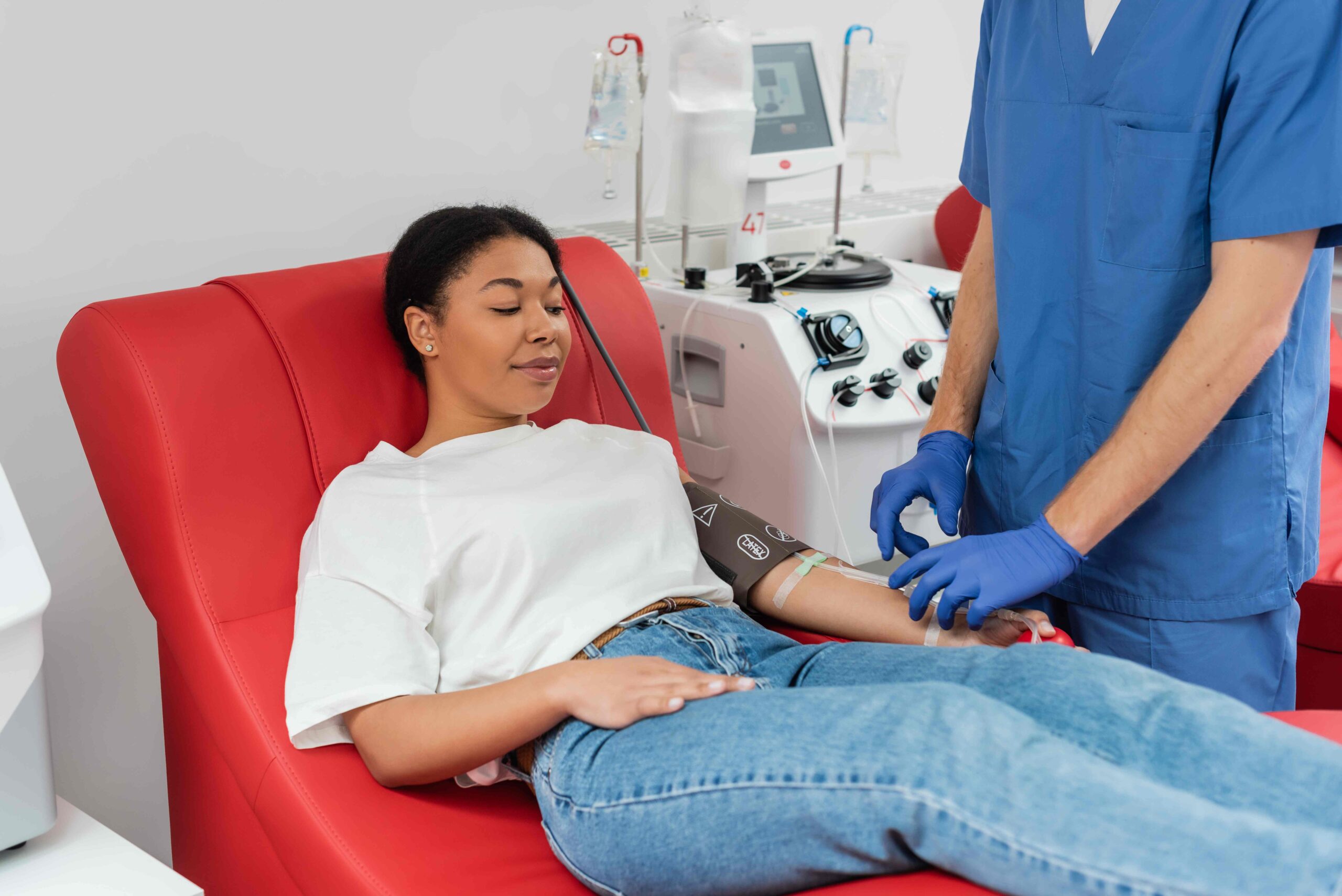Understanding Ketamine Treatment
For those struggling with treatment-resistant depression, a novel solution has emerged in the form of ketamine treatment. The unique properties of this drug have shown promise in combating symptoms of depression, particularly when other treatment options have proved ineffective.
History and FDA Approval
Ketamine has been in use for over half a century, primarily as an anesthetic. However, in recent years, it has gained attention for its potential as a treatment for depression. The US Food and Drug Administration (FDA) granted approval for esketamine, a component of ketamine, in 2019 specifically for the treatment of resistant depression.
In the past two decades, numerous clinical trials have been conducted, demonstrating ketamine’s capacity to rapidly alleviate depressive symptoms in patients for whom other treatments have failed. Among these, seven trials between 2010 and March 2016 showed substantial tolerability and relatively sustained antidepressant effects of subanesthetic dose ketamine in patients with treatment-resistant depression.
How Ketamine Treatment Works
The efficacy of ketamine treatment for depression is linked to its mechanism of action. Unlike conventional antidepressants that typically take weeks to exert their effects, ketamine has been shown to produce rapid-acting antidepressant effects, often within hours. Moreover, these effects can last up to seven days (Source).
This swift onset is especially beneficial for patients experiencing suicidal ideation, where a delay in treatment response can be potentially life-threatening. Clinical trials have shown that ketamine can rapidly reduce both suicidal ideation and anhedonia, the inability to feel pleasure (Source).
Thus, ketamine treatment presents a new paradigm in the management of treatment-resistant depression, offering hope to those who previously found little relief from conventional therapies. As research progresses and our understanding of this treatment deepens, ketamine has the potential to revolutionize the approach to treating depression, providing a rapid and effective solution for those struggling with this debilitating condition.
Further information on the risks and benefits can be found at Oxford Health NHS Foundation Trust, offering comprehensive insights into the applications and implications of ketamine treatment for depression.
The Efficacy of Ketamine Treatment
The effectiveness of ketamine treatment for depression is attracting increasing attention in the medical community, particularly for its rapid onset of action, sustained improvement in symptoms, and potential in treating resistant depression.
Rapid Onset of Action
One distinguishing feature of ketamine treatment is its rapid onset of action. Studies have shown that an improvement in depressive symptoms can be observed within hours to days following a single infusion of ketamine. Furthermore, the antidepressant effects of ketamine can be observed as early as the first day in patients with both unipolar and bipolar depression, leading to significant and rapid antidepressant responses.
The rapid action of ketamine is particularly noteworthy as conventional antidepressants typically take several weeks to exhibit noticeable effects. This fast-acting nature of ketamine provides immediate relief to patients, making it a potentially life-saving treatment for those with severe depression and suicidal ideation.
Sustained Improvement in Symptoms
Not only does ketamine treatment provide rapid relief from depressive symptoms, but it also offers sustained improvement. Studies have indicated that the potent effect of ketamine on depression can be noticeable immediately post-administration and sustained up to a month after.
Additionally, ketamine has been shown to have antidepressant effects lasting up to 7 days in treatment-resistant depressed patients. This means that patients can experience a significant reduction in depressive symptoms for an extended period following a single treatment session, further affirming the efficacy of ketamine treatment for depression.
Treatment for Resistant Depression
Ketamine treatment has demonstrated significant potential in effectively treating resistant depression. It has been observed that a single intravenous dose of ketamine can result in rapid improvement in treatment-resistant depression, with the fastest significant response within 2 hours and the slowest within 4 hours.
These findings highlight the transformative potential of ketamine treatment for patients who have found little to no relief from traditional antidepressants. By offering a new avenue of treatment for resistant depression, ketamine can provide hope for patients who previously found their condition untreatable.
In conclusion, the efficacy of ketamine treatment for depression is supported by its rapid onset of action, sustained improvement in symptoms, and effectiveness in treating resistant depression. As a result, it represents a promising treatment option for individuals struggling with depression, particularly those who have not responded to conventional treatments.
Potential Side Effects of Ketamine
While ketamine treatment for depression has shown promise in providing rapid relief for patients, it’s crucial to be aware of its potential side effects. These can be physical or mental in nature and may vary in severity. It’s also important to consider the long-term safety concerns associated with this treatment.
Physical and Mental Side Effects
Ketamine, having been used as an anesthetic for over 50 years, can cause several physical side effects, which include increases in blood pressure, changes in heart rate, and fluctuations in intracranial pressure (UpToDate). Other potential side effects include nausea or vomiting, headache and tinnitus.
On the mental front, ketamine treatment can lead to transient dissociative symptoms, psychotomimetic effects — alterations in thought processes and perception, which include hallucinations, and out-of-body experiences, particularly at higher doses (Harvard Health, UpToDate). There’s also the risk of anxiety, confusion, vivid dreams, mania, and in severe cases, a worsening of depressive symptoms and suicidality.
Long-term Safety Concerns
The long-term safety and efficacy of ketamine and esketamine for depression treatment are still under investigation, and there remain concerns about potential risks such as substance abuse and cognitive deficits (UpToDate).
Furthermore, there’s a potential for liver damage and the development of dependence on ketamine, especially with long-term use. Approximately 10% of individuals receiving a ketamine infusion may have a challenging experience, which can include a worsening of depressive symptoms and suicidality for up to two weeks after treatment. However, it’s worth noting that side effects typically resolve within 15 minutes of stopping the infusion (Oxford Health NHS Foundation Trust).
While the potential of ketamine treatment in managing depression is promising, it’s crucial for potential patients and their healthcare providers to weigh these risks against the potential benefits. A thorough understanding of the potential side effects and long-term safety concerns of ketamine can assist in making an informed decision about this treatment option.
Insurance Coverage for Ketamine Treatment
The issue of insurance coverage for ketamine treatment is complex and varies widely by insurance provider and plan. Unfortunately, many insurance companies do not currently cover the cost of ketamine infusions for depression.
It’s recommended that individuals interested in ketamine treatment reach out to their insurance provider to inquire about coverage. Some providers may cover a portion of the cost, especially if other depression treatments have been unsuccessful. However, in many cases, individuals may need to pay out-of-pocket for ketamine treatment.
Given the potential high cost of ketamine treatment for depression, it’s essential to weigh the potential benefits against the financial investment. Evidence suggests that ketamine therapy can provide significant improvement in depression and anxiety symptoms, making it a viable option for those struggling with treatment-resistant depression. However, the financial aspect is a crucial consideration in the decision-making process.
Ketamine Treatment and Addiction
While ketamine is gaining recognition for its role in treating depression, it’s essential to address concerns about its potential for abuse and addiction. It’s also crucial to understand how tolerance can be managed to maintain the effectiveness of the treatment.
Abuse Potential
Ketamine’s routine clinical use for depression is constrained by its abuse potential and dissociative properties. Notably, it is still used recreationally under the street name “Special K.” Researchers are actively exploring the molecular mechanisms underlying ketamine’s antidepressant actions to develop novel treatments that mimic its antidepressant effects but lack its undesirable side effects.
Side-effects of ketamine treatment for depression may include dissociation, dizziness, altered perception, nausea or vomiting, anxiety, headache, tinnitus, vivid dreams, hallucinations, mania, liver damage, and dependence. These side effects can occur during or shortly after treatment and vary in severity.
Managing Tolerance
Like many medications, the use of ketamine for depression may lead to tolerance in some patients. This means that the initial relief of depression is no longer controlled despite continued treatment. However, strategies exist to manage this tolerance. These may include adjusting the dose, extending the interval between doses, or adding a regular weekly dose of oral ketamine taken at home between monthly infusions.
Despite the concerns about addiction and tolerance, it’s important to remember that ketamine’s antidepressant effects can be observed as early as day 1 in patients with unipolar and bipolar depression, leading to significant and rapid antidepressant responses. It plays a role in managing suicidal ideation, reducing self-harm, and the duration of depressive symptoms.
In conclusion, while the potential for abuse exists with ketamine treatment, it offers a promising new avenue for treating depression, particularly in individuals who have not responded to traditional antidepressant therapies. As with any treatment, it’s important to weigh the benefits against the risks and to work closely with a healthcare provider to ensure that the treatment is used safely and effectively.
Esketamine: A Component of Ketamine
An important component of ketamine is esketamine, a substance that has demonstrated significant benefits in treating depression. This section will delve into its FDA approval and the results of clinical trials.
FDA Approval
While ketamine has been used as an anesthetic for over 50 years, esketamine was only recently approved by the US Food and Drug Administration (FDA) in 2019. Its approval was specifically for the treatment of treatment-resistant depression (UpToDate). This endorsement by the FDA marked a significant milestone in the field of mental health treatment, particularly for those suffering from severe forms of depression that do not respond to traditional therapies.
Clinical Trials and Results
In the realm of clinical trials, both ketamine and esketamine have shown efficacy in patients with major depressive disorder, including those with treatment-resistant depression (UpToDate).
Specifically, ketamine has led to a rapid and relatively sustained antidepressant effect in a subanesthetic dose, with substantial tolerability in patients with treatment-resistant depression in seven clinical trials between 2010 and March 2016.
Furthermore, ketamine has shown to have rapid-acting (within hours) and sustained (lasting up to 7 days) antidepressant effects in treatment-resistant depressed patients. Its efficacy has also been demonstrated in patients with bipolar depression.
Large trials of esketamine have shown effects similar to those of ketamine in treating depression. Notably, a study involving over 800 patients using intranasal esketamine alongside a newly initiated antidepressant showed a 43% remission rate after 12 months of treatment. In this context, remission refers to the absence of significant depression symptoms (Oxford Health NHS Foundation Trust).
These results underscore the potential of esketamine as part of a comprehensive ketamine treatment for depression, particularly for patients who have found traditional treatments ineffective. As research continues in this field, further refinement and understanding of this treatment will continue to evolve.







